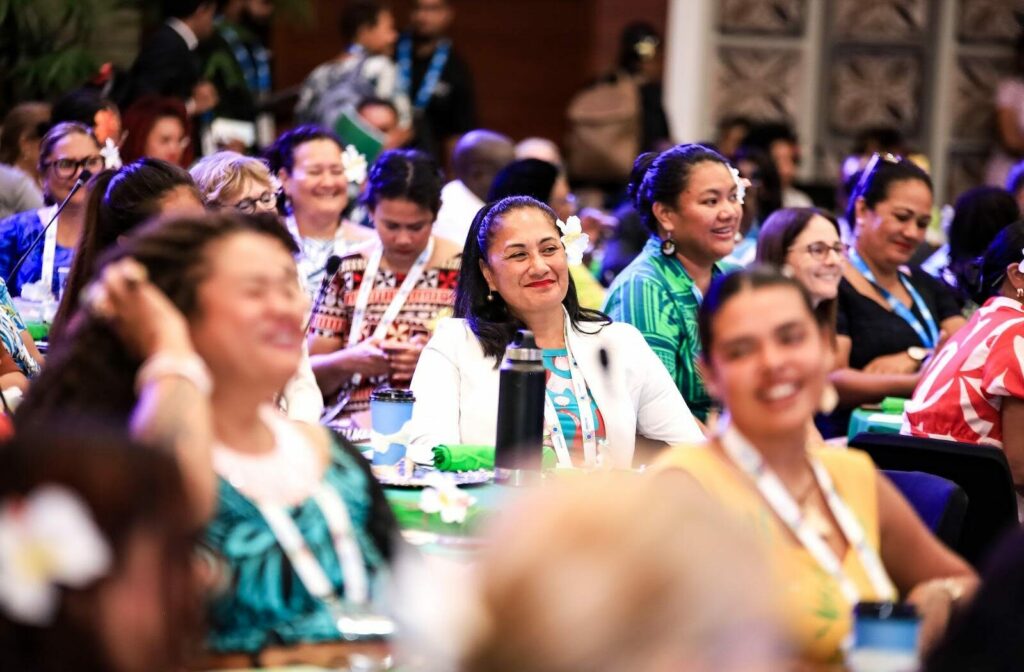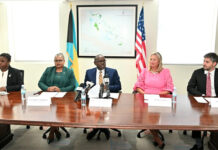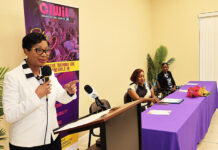
SAMOA| Commonwealth leaders are being urged to work harder to get rid of the barriers and biases that continue to hold back women and girls in the 56 member countries.
This urgent appeal comes from a report that represents the voices of more than 400 delegates, including prime ministers, ministers, women’s rights advocates and business leaders, who attended the Commonwealth Women’s Forum in Apia, Samoa, from 21 to 22 October 2024.
The report will be presented to Commonwealth leaders this week to urge stronger action on transforming the status of women in government, business and society.
A recent United Nations study reveals that, while gender equality is achievable, the progress remains alarmingly slow. At the current rate, it could take 137 years to lift all women out of poverty and gender parity in parliaments will not be reached until 2063.
In their report to leaders, delegates responded with calls for greater protection from gender-based violence, policies to get more women into leadership, increased economic opportunities, and investment in women-led climate solutions.
A central theme in the report is the need for bespoke policies that address overlapping forms of discrimination, including disability, age and identity, to ensure all women and girls can live with dignity and safety.
Speaking at the closing session of the Women’s Forum, Commonwealth Deputy Secretary-General Dr Arjoon Suddhoo acknowledged the slow progress.
He said: “None of the Sustainable Development Goal 5 targets for gender equality and women’s empowerment are on track. This must change now. There can be no more delays.
“The recommendations you made together will guide our 56 Commonwealth countries in taking bold action to make 2030 the expiry date for gender inequality.”
Mmapaseka Steve Letsike, South Africa’s Deputy Minister of Women, Youth, and Persons with Disabilities, delivered a powerful message at the forum.
“Humanity is at war with its women, girls and other vulnerable groups. This cannot be accepted as normal,” she said.
As a survivor of gender-based violence, Letsike called for sweeping changes, not just in laws and policies, but also in hearts and minds. “We must collectively wage a war against gender-based violence,” she concluded.
Siliniu Lina Chang, President of the Samoa Victim Support Group, echoed the urgency of action by sharing the haunting last words of a femicide victim who said, “Let it [abuse] end with me.”
Drawing on her two decades of work with victims of violence, she called for practical solutions, such as trained medical staff, victim liaison officers, and safer court environments, to ensure women in need are better supported.
Tuvaluan Prime Minister Hon Feleti Penitala Teo drew attention to the need to engage men and boys in the fight for gender equality.
“Men must be part of the conversation, not just as advocates but as active participants in dismantling the barriers faced by women. This is how we build a society that benefits everyone,” he said.
Joleen Mataele, Vice-Chair of the Commonwealth Equality Network, spoke about the power of education in tackling exclusion.
“When climate disasters hit, evacuation centres often refuse to accept us,” she said. “Education is key to raising awareness of the needs of marginalised people and ensuring those needs are recognised and protected. This is fundamental if we are to truly leave no one behind.”
The Commonwealth Women’s Forum was held in Apia in partnership with the Government of Samoa.







